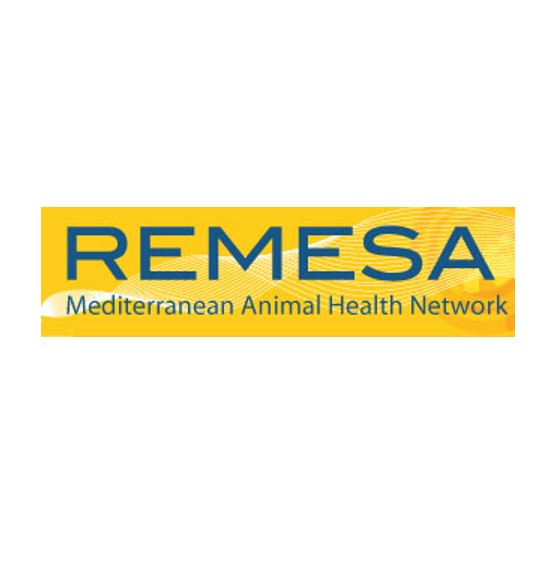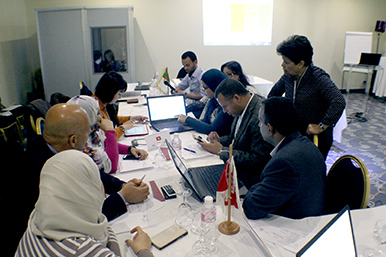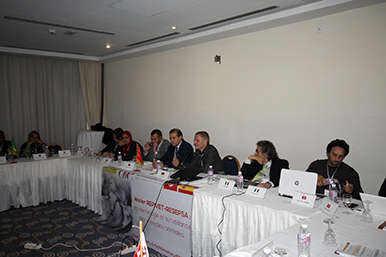
Working group session.
The OIE Sub-Regional Representation for North Africa organized on December 1-2 in Tunis (Tunisia) a workshop on epidemiology and surveillance of animal diseases under the context of REMESA (REseau MEditerranéen de Santé Animale).
The workshop was addressed to the experts on epidemiology and socio-economic from 8 countries from the Southern part of the Mediterranean basin (Algeria, Egypt, Jordan, Lebanon, Libya, Mauritania, Morocco and Tunisia) with the general objective of improving knowledge on animal health disease surveillance in North Africa region and part of Middle East as well as to start discussing cross-cutting socio-economic elements.
The workshop included appropriate interactive sessions by allowing countries to present their experiences in terms of animal diseases surveillance. Unfortunately – and for several reasons – countries from Middle East could not attend the workshop.
International experts from OIE Reference Centres (IZSAM, CIRAD) and other bodies such as EuFMD and EFSA participated in the workshop as well as experts from Tunisia and in particular coming from National Center for Animal Health Surveillance (CNVZ) in Tunisia and from Tunisian Veterinary Research Institute (IRVT).
The workshop was very fruitful and several aspects in relation to animal disease surveillance and epidemiological investigations – mainly focused on FMD – were debated in light of the high quality presentations delivered by the experts and by the countries showing a high level of transparency.
The participants expressed the need of continuing to organize training in this field by recognizing, in parallel, the necessity to move on with some priorities nowadays essential for the North African region such as the animal identification system and related animal movements’ traceability. Other matters (e.g. accreditation of laboratories and sampling methods) were also raised and certainly be considered..
Working group session
The OIE Sub-Regional Representation for North Africa informed the participants of the organisation in 2016 of at least 2 workshops; one dedicated to the elaboration of an harmonized FMD regional vaccination strategy and one committed to explore the suitable livestock animal identification system for the region including the small ruminants.



